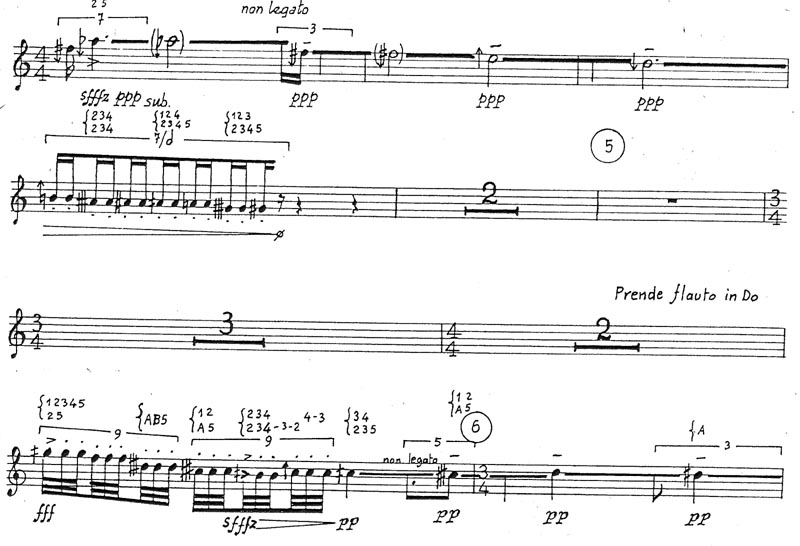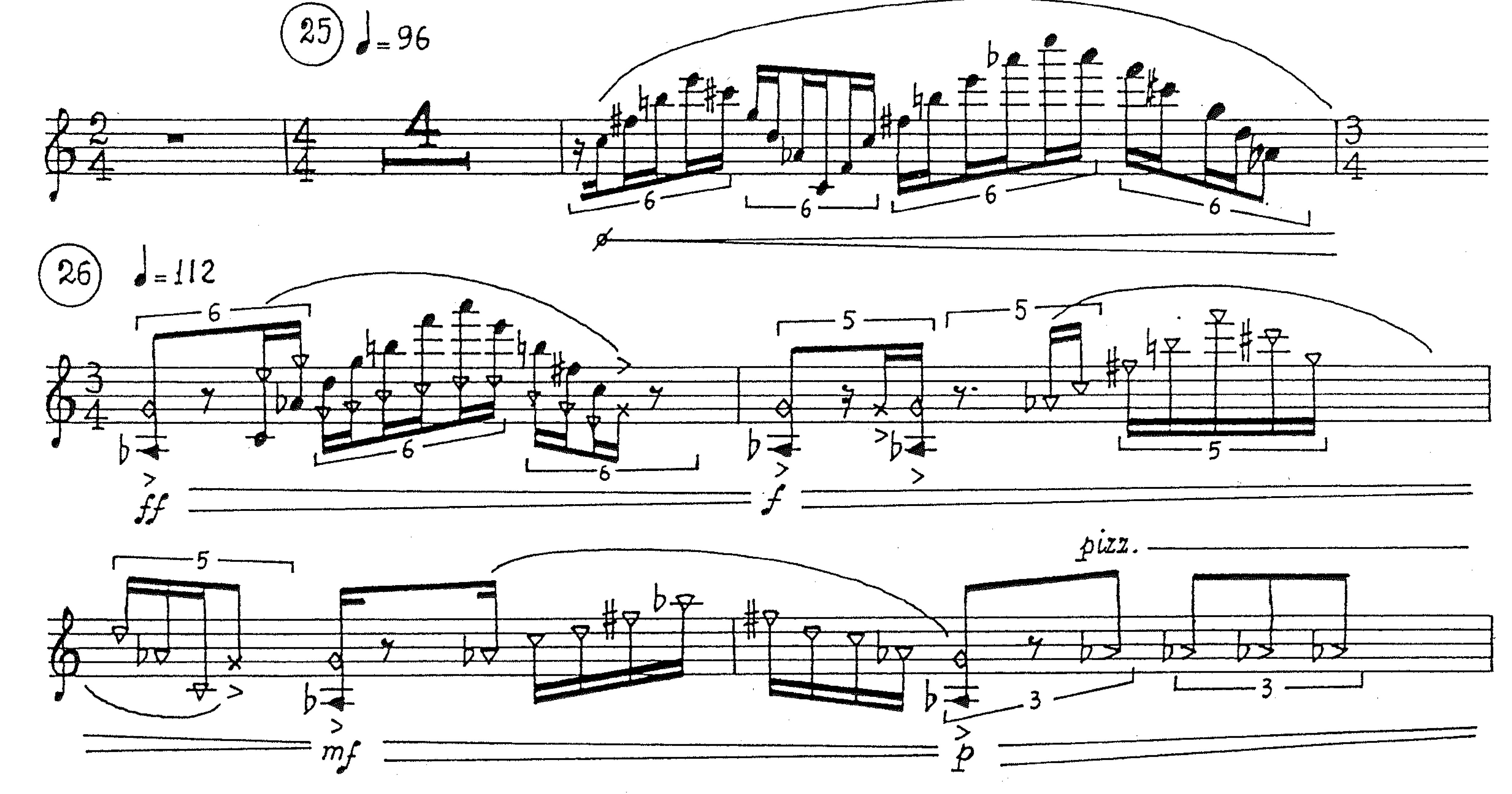I have already written a lot on the subject of percussive sounds, but here I would like to add a few subtleties of usage.
We will be performing Grisey’s Talea soon, and preparing the score, I am struck by how fantastic the piece is, yet how awkwardly some of the percussive effects are used. My goal is not to fault Grisey, but since there are composers who may emulate him (and why not? he was a wonderful composer!), I want to smooth the way. It seems to me Grisey and many other composers have a misconception of what these effects can actually achieve.
A tongue or lip pizzicato does not add volume to a note (especially in an ensemble context), and is never louder than an ordinario note played at the same volume. It is a misconception to think that starting a note with a pizz will intensify its initial volume. A really forceful accent with the airstream, or with the langue sorté, will do the job better. In a solo work, a pizz will give a satisfying pop, and is an effective way to vary articulation. This pop is produced by closing off the resonance of chest cavity and most of the flute tube (since there is minimal air traveling down it), and is not compensated by the meager resonance inside the mouth.There is no air stream to project the sound. This is why I am frustrated by the following passages, where if I play a true pizz, I get a lessening of volume and intensity – just the opposite of what is musically called for:
 This next sample shows a similar volume difficulty with the tongue ram at the end of a crescendo on the downbeat of 26, along with the difficulty of switching quickly from closed embouchure position to open in the two bars after 26. And I have to ask, who the hell is going to hear those key clicks? This is why they fall so often into my “why bother” category of techniques. Great use of pizzicato here, though.
This next sample shows a similar volume difficulty with the tongue ram at the end of a crescendo on the downbeat of 26, along with the difficulty of switching quickly from closed embouchure position to open in the two bars after 26. And I have to ask, who the hell is going to hear those key clicks? This is why they fall so often into my “why bother” category of techniques. Great use of pizzicato here, though.
 Why am I bothering with such small things? The musical intentions of the composer are clear, and one can easily perform the gesture with alternatives. However, students of flute and composition are getting younger and younger. Our youth ensemble is tackling repertoire I never dreamed of when I was in my teens. They may not have the experience to immediately grasp what is needed musically. They will, at first, take the score literally, thus getting frustrated. If their teacher is also inexperienced, there will be a double frustration and the trust between composer (alive or dead) and performer damaged.
Why am I bothering with such small things? The musical intentions of the composer are clear, and one can easily perform the gesture with alternatives. However, students of flute and composition are getting younger and younger. Our youth ensemble is tackling repertoire I never dreamed of when I was in my teens. They may not have the experience to immediately grasp what is needed musically. They will, at first, take the score literally, thus getting frustrated. If their teacher is also inexperienced, there will be a double frustration and the trust between composer (alive or dead) and performer damaged.
Leave a Reply